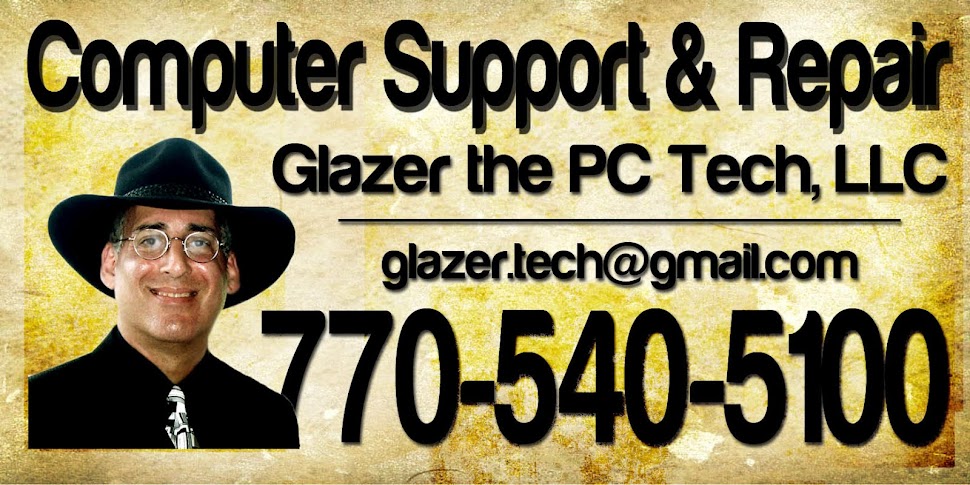Computer Care: Beware of costly email scams
By Arthur Glazer
glazer.tech@gmail.com
POSTED: August 20, 2011 1:00 a.m.
Computers are getting faster as prices drop. Facebook dominates the Internet and email scams from Nigeria and various mystery lotteries continue to fill my spam box.
I receive about a dozen of these notices each week. The most recent stated I had won $350,000 in the Blackberry Online Promotion.
Not only do I not own a Blackberry device, but it is supposedly a raffle draw, or a lottery. Don't you have to purchase tickets in a lottery before you can win it? Obviously not everyone asks themselves that question, because many do respond.
I also regularly receive emails from the Minister of Finance in Nigeria, announcing my winnings. They must be constantly replacing the minister, because I can't help but notice, each email lists a different minister.
According to the Federal Trade Commission, the number of people falling for the Nigerian scam is steadily increasing. In 2005, more than 55,000 people lodged complaints, up three times the amount from 2003. Following that rate, the number today would be just shy of a million.
The FTC also states that the number of people who actually file complaints is low, compared to the amount that are suckered into the scheme. People are simply ashamed to come forward. According to authorities, only 15 percent of fraud victims report their losses.
The U.S. Secret Service may also get involved with combating these crimes, but will not investigate unless there is a monetary loss of at least $50,000.
The Nigerian Scam 419, as it is called, is the third most lucrative Nigerian industry, generating more than $5 billion in the past 20 years. It got its name "419" from the Nigerian criminal code that deals with the crime.
Advance-fee fraud is another name for the Nigerian scam. This is a crime that asks for money up front in order to get more money. You pay a fee, and usually more than one, to procure you winnings - or not.
Scams evolve. The advance-fee fraud is similar to an older "Spanish prisoner" scam, where in exchange for money to bribe prison guards, a wealthy prisoner is promised a share of supposed treasure.
The reason so many of us continue to see these scams is because the scammers are getting enough responses to make it worth their while. You wouldn't think they would keep sending those emails year after year, but sending spam costs the spammer nothing.
Hypothetically, let's say they send a million emails (usually more) and 10 people respond. Each is suckered out of a mere $5,000 (usually much more). The Nigerian reprobate just made $50,000 sitting at his desk sending email.
More realistically, they may send 10 million emails, which follows with 100 respondents. That yields $500,000. Now that makes it worth sending those emails.
Similar email schemes involve work-at-home scams where you would take in money for a company and forward it to them from your account. You would then supposedly be compensated for it. Again you lose, as their checks ultimately bounce.
Another trap is charity scams. They tug on your heart strings asking for donations for accident victims, missing children, national disasters and so on. If you are solicited by a group for money, ask them questions before you agree to anything. Find out who they are. Ask if they could call you later or is there a call-back number? They will most likely hang up on you at that point.
A study by the Dutch firm Ultrascan shows last year advanced-fee scams resulted in losses more than $9 billion. Since they began about two decades ago, more than $41 billion in losses have been reported.
We recently got a phone call from supposed reps from the IRS (even though caller ID said Kingston, Jamaica) telling us we were winners in an IRS lottery. My wife joyously shouted to me that we had won and played along momentarily before she asked the silver-tongued miscreant if his mother knew what he did for a living - and then hung up.
We knew someone who was sucked into a similar scam. She was educated and intelligent. After going through tens of thousands of dollars, she maxed out her credit cards to these guys and ultimately had a stroke.
Those who fall for the scams are from all different areas of life demographically, having one thing in common: the greed of wanting or needing quick money.
To avoid becoming a victim:
- Don't succumb to pressure to respond quickly.
- Don't give money to a cause you don't fully understand.
- Ask where and with whom the firm is registered.
- Request written information.
- Do your own research about the company.
- Ask that information be sent to a financial adviser.
- Don't provide or verify any personal information.
- When in doubt, hang up or don't reply to emails.
If you have been victimized, forward appropriate written documentation to the United States Secret Service, Financial Crimes Division, 950 H Street, NW, Washington, DC 20223.
If you have to send money to win money, there is something wrong with the picture - and you don't want to be in it.
Arthur Glazer is a freelance writer and computer technician in Gainesville. His column appears biweekly on the Business page and on gainesvilletimes.com.
